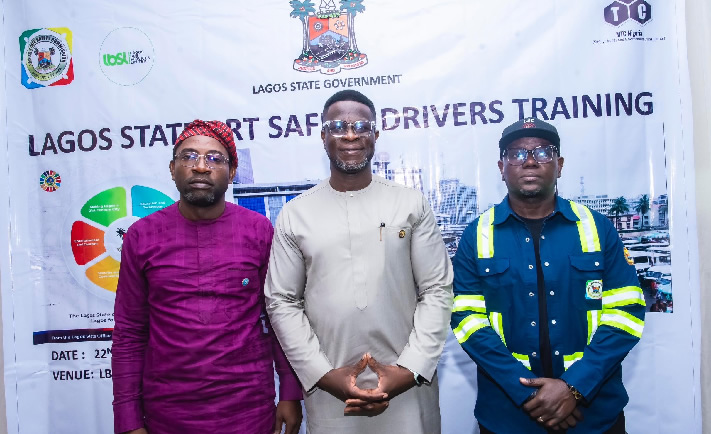The Lagos State Safety Commission, in partnership with the Lagos Bus Service Limited (LBSL), spearheaded a comprehensive road safety training program for Bus Rapid Transit (BRT) system drivers, emphasizing the critical role of human factors in road safety. The program, aptly themed “The Mind Behind the Wheel,” aimed to equip drivers with enhanced knowledge and practical skills to navigate the complexities of Lagos roads, respond effectively to emergencies, and proactively prevent accidents. The training, held at the LBSL headquarters in Oshodi, underscores the state government’s commitment to improving road safety and minimizing human error, a major contributor to road accidents globally.
The Director-General of the Safety Commission, Lanre Mojola, inaugurated the program, highlighting the alarming statistic that human error accounts for over 75% of road accidents both globally and locally. He emphasized the significance of the training for the drivers, not only for their personal safety but also for the safety of the millions of Lagos residents who rely on the BRT system daily. Mojola underscored the alignment of the training with the Governor Babajide Sanwo-Olu’s THEMES-Plus agenda, particularly its focus on enhancing transportation and traffic management. He expressed confidence that the program would contribute significantly to embedding global best practices within the state’s public transport sector.
The Managing Director/CEO of LBSL, Idowu Oguntona, echoed the importance of the initiative, emphasizing the government’s unwavering dedication to ensuring safe mobility within the bustling metropolis of Lagos. Oguntona recognized transportation as the lifeblood of the city and reiterated LBSL’s commitment to continuously upskilling its drivers, who shoulder the responsibility of transporting millions of passengers daily. He described the training as an essential tool empowering drivers to remain vigilant, disciplined, and professional in their service delivery.
Poju Fowokan, representing the Managing Director of the Lagos Metropolitan Area Transport Authority (LAMATA), commended the collaborative effort between the Safety Commission and LBSL. He encouraged the drivers to embrace personal responsibility for their actions on the road, recognizing that their decisions directly impact the safety of themselves, their passengers, and other road users. This collaborative approach between government agencies and transport operators reflects a concerted effort to address the multifaceted challenges of road safety in a densely populated urban environment.
The road safety training program is a crucial step towards mitigating road accidents and improving the overall safety of public transportation in Lagos. By addressing the human element through targeted training, the initiative seeks to cultivate a culture of safety consciousness among BRT drivers. This proactive approach aims to transform driver behavior, promoting responsible driving practices and reducing the likelihood of accidents caused by human error. The emphasis on emergency response and accident prevention mechanisms equips drivers with the skills and knowledge necessary to react effectively in critical situations, minimizing potential harm.
The program’s focus on “The Mind Behind the Wheel” underscores the importance of psychological factors in driving behavior. By understanding the mental processes involved in decision-making while driving, the training aims to equip drivers with strategies to manage stress, avoid distractions, and maintain focus on the road. This holistic approach, incorporating both technical skills and psychological awareness, seeks to create a more comprehensive safety framework for BRT operations. The collaborative effort between the Safety Commission, LBSL, and LAMATA demonstrates a unified commitment to elevating safety standards and safeguarding the lives of commuters and road users alike. This initiative aligns with global trends in road safety, recognizing the importance of human factors in accident prevention and promoting a culture of responsible driving within public transportation systems.














